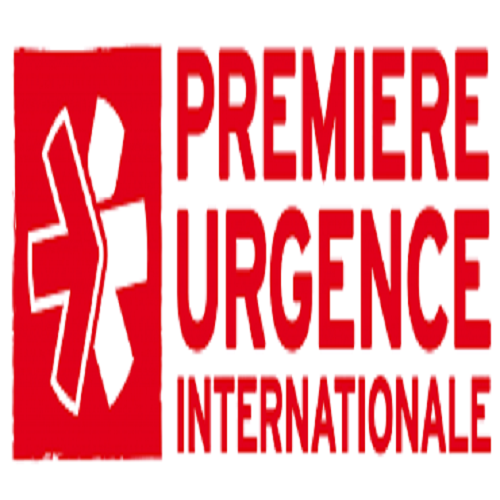Monitoring Evaluation And Learning Coordinator – PUI Retour vers les opportunités
Première Urgence Internationale
Lance Offre d'emploiÉchéance
05 Juin 2020 Il y a 6 ans
Partager l'opportunité sur
Détails de l'opportunité
| General information on the mission | |||||
| Context | |||||
| Première Urgence Internationale (PUI) is a non-governmental, non-profit, non-political and non-religious international aid organization. Our teams are committed to supporting civilians’ victims of marginalization and exclusion, or hit by natural disasters, wars and economic collapses, by answering their fundamental needs. Our aim is to provide emergency relief to uprooted people in order to help them recover their dignity and regain self-sufficiency. The association leads in average 200 projects by year in the following sectors of intervention: food security, health, nutrition, construction and rehabilitation of infrastructures, water, sanitation, hygiene and economic recovery. PUI is assisting around 7 million people in 22 countries – in Africa, Asia, Middle East, Eastern Europe and France.
Crisis context After an armed and civil uprising ended Muammar al Gadhafi’s regime in late 2011, the authorities have had difficulties to address pressing security issues, reshape the country’s public finances, or create a viable framework for post-conflict justice and reconciliation. Thus, since 2014, non-state armed groups have disrupted Libya’s political transition. In 2019, the whole population is still affected by the armed conflict and the lack of a functioning government, and 823 000 people will still need humanitarian assistance (including 554,000 people in need of health care services) throughout the whole assessed territory in Libya. The complex humanitarian crisis is primarily driven by the absence of the rule of law, lack of access to basic services, displacement of population, the collapse of the economic system and the financial crisis. On April 4th 2019, the Libyan National Army (LNA) under the guide of General Haftar, announced the beginning of a large scale offensive against the Government of National Accord (GNA) in Tripoli. Soon after, the southern neighbourhoods of the city were engulfed in the conflict. To date, continued clashes, involving the use of heavy weaponry and airstrikes, affected 500,000 people, and displaced over 100,000 people within the Libyan capital, to the neighbouring cities, and, more recently to Tunisia. Throughout 2019, in Benghazi and its surroundings, the situation remains calm even though tensions and heavy fighting took place in other towns of the country (Darnah, Tripoli, and Sabha). In eastern Libya, the situation remained relatively stable, allowing PUI program’s to progress despite bureaucratic interferences. However, this fragile equilibrium could be rapidly overturn depending on the evolution of conflict. Premiere Urgence Internationale (PUI) is monitoring closely the events and, is evaluating potential scenarios to adapt its humanitarian response. The violation of human rights and humanitarian law remain high countrywide, including of children and women’s rights. Important levels of gender-based violence are reported. In the Southeast of the country, the tensions between the Tebu and the Zway tribes seriously affects the health system and the access to basic services. Tribe communities, when they are a minority in the area, are suffering from segregation in most of Al Kufrah’s institutions, including health care facilities. This occurs in a context of underdevelopment and poverty that exacerbates the impact of the conflict on the population in the region. Indeed, this area has been suffering, even before the conflict, from a poor investment from the central government. However, few information are available on this area and its humanitarian needs due to a poor, if not almost inexistent, presence of NGOs. Besides, in the Libyan context, migrants, refugees and asylum seekers leaving outside and within the detention centres (DCs) represents another significant vulnerable group in Libya. Estimated to be around 700,000 to 1 million, they are among the most vulnerable population in the country and are currently facing acute needs. This includes number of migrants in detention centers. These persons, including both asylum seekers and refugees, have been consistently identified as being the most vulnerable individuals throughout Libya for several reasons. In particular, they are identified as having reduced access to, and availability of life-saving assistance. Additionally, various report show that refugees and asylum seekers in Libya face significant protection concerns, with their status making them particularly vulnerable to abuse, marginalisation, and exploitation. Those who move through the country are exposed to widespread abuses and human’s rights violation along the route. Due to their irregular status, lack of domestic support networks, impunity for crimes committed against foreign nationals, racism, xenophobia and policies linked to the control of mixed migrations flows in Europe, they are highly vulnerable and in need of humanitarian assistance.
|
|
Job Description |
||||||||
| Overall objective | ||||||||
| The MEAL Coordinator will support PUI’s Technical Coordinators (Health, Protection and Basic Needs) and the Program Staff in being accountable to donors, constituents and stakeholders in the Libya mission, ensuring documentation of progress, measurement of effectiveness and impact, for donors reporting requirements and organisational accountability process. The MEAL Coordinator will support the project teams in the development of MEAL plans and tools for each project and provide MEAL guidance for the bases. The MEAL Coordinator will ensure the development and the effective management of data collected for utilisation in reports, proposals, learning exercises and improvement of implementation quality.
The MEAL Coordinator will lead assessments in liaison with project implementation teams and under the supervision of the Field Coordinators, standardise systems and capitalise on tools, and provide strong support at base level to monitor and ensure quality through lessons-learned of ongoing projects.
|
L'opportunité a expiré
Cette opportunité n'est malheureusement plus disponible sur Jamaity. Visitez régulièrement la rubrique opportunités pour ne plus en rater.
Contacts
PUI
Suivez Jamaity sur LinkedIn
Obtenez Jamaity Mobile dès maintenant

Offre d'emploi Publié sur Jamaity le 18 mai 2020
Découvrez encore plus d'opportunités sur Jamaity en cliquant sur ce lien.





